Election results 2019: The economic questions
- Published
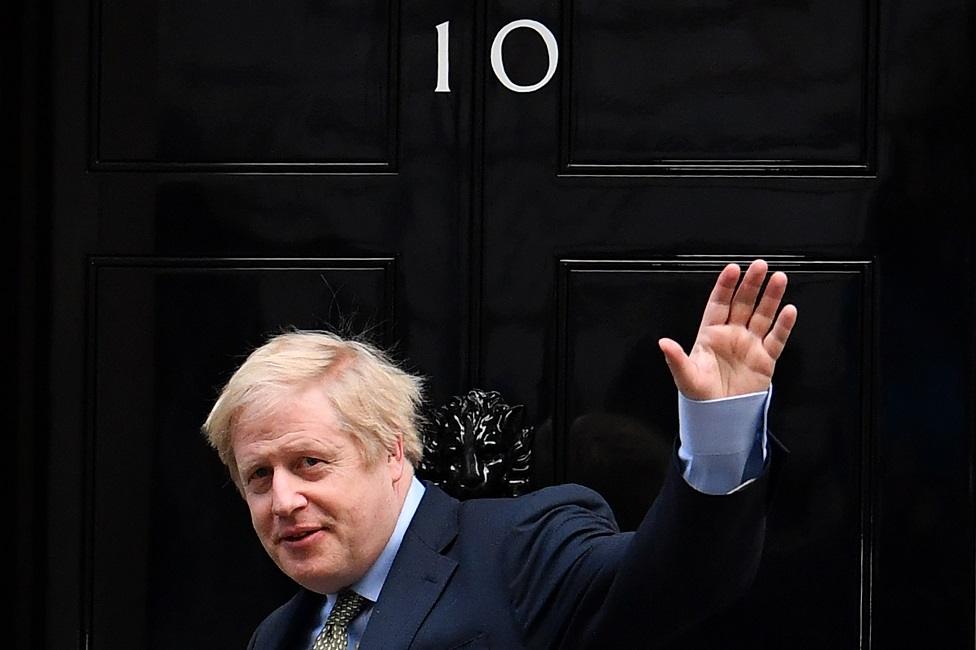
Markets like the removal of much uncertainty from Westminster politics, and business is relieved, but they are looking nervously at future trade negotiations
A new uncertainty is around the fiscal discipline we can expect from Downing Street. It looks more relaxed than over the past nine years
Holyrood faces a major problem in getting its budget set for next April
The politics may lead to another Scottish independence referendum. But the economic challenges have not become any easier
A solid working majority for the Conservatives at Westminster, and a solid confirmation of the SNP's dominance in Scotland: what does it mean for money? Here are some answers, as the dawn breaks on a new political era.
How are markets reacting?
They like the result, more because it reduces uncertainty than because they like Boris Johnson. The pound has been rising against other currencies since hitting lows in August and September. With a no-deal crash averted in October, and the growing likelihood of an election result favouring the Tories, sterling has strengthened.
It put on another 2% against the US dollar as the exit poll was announced. So since that low in late summer, the pound has risen from below $1.20 to $1.34, and the euro is up from 1.07 to 1.20.
That means the pound goes further for British tourists overseas, inflation should be edged downwards, while British exports will become more expensive. But the pound is still weaker than it was before the Brexit referendum vote in 2016.
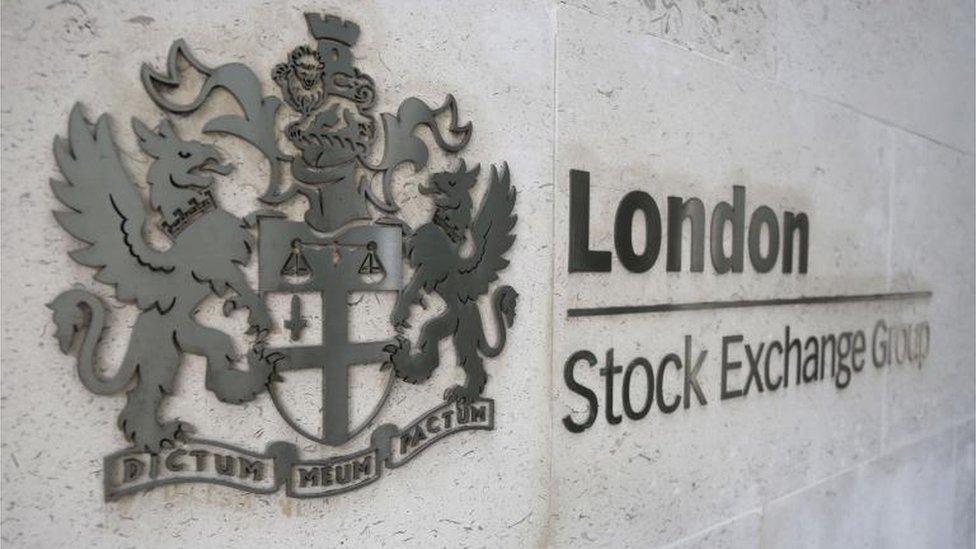
Other markets have been positive, where they have reflected prospects for the UK economy. The FTSE 100 index is not up much, but that is because the firms in it make a lot of their money overseas - typically mining and oil companies - and when that is exchanged for strengthened pounds, it makes less in profits.
However, the FTSE 250 index includes smaller firms and they have more of a UK focus. It rose more than 4% in early trading. The big risers were banks and utilities, reflecting improved prospects for the UK economy and an end to the prospect of nationalisation by Jeremy Corbyn and a Labour government.
Royal Bank of Scotland was up 11%, Virgin Money by 16% and SSE by 10%.
How is the election result likely to impact on the economy?
For three years, business has been asking for an end to uncertainty, particularly over Brexit. It would also like a government with the bandwidth to focus on other priorities.
The result makes Brexit a racing certainty at the end of January. Corporate Britain has a lot of cash on hold, awaiting the return of confidence so that it can invest. If that is deployed, it could boost output and the economic growth rate.
However, there is still reason to keep that investment on hold. The result doesn't make it any easier for the Conservative government to strike a deal with either the European Union, the USA or any other trading partner.
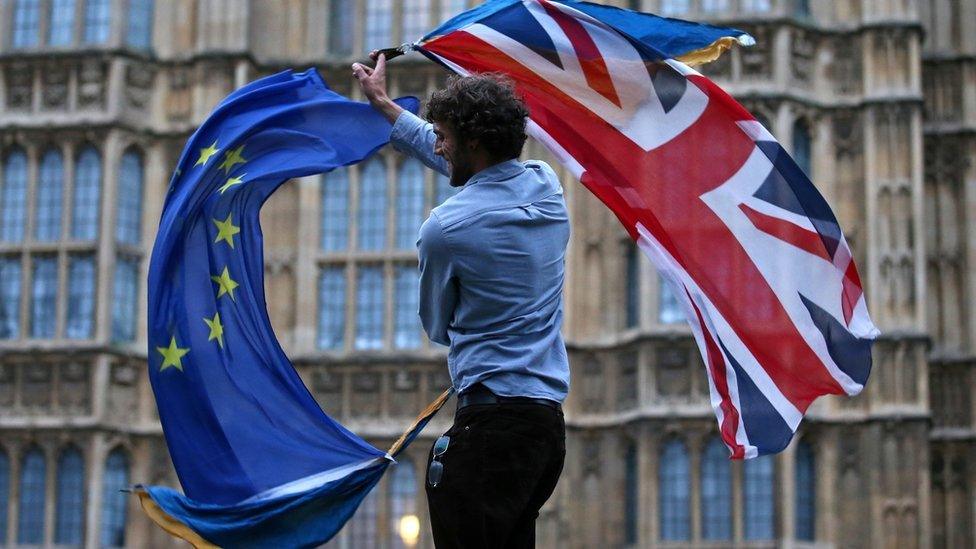
A deal on the long-term trading relationship with the EU is up against a very tight schedule, of getting to an agreement by the end of next year. The chances of getting to a deal don't look good, so all that 'no deal' uncertainty could return in the second half of 2020.
This is where the size of Boris Johnson's majority matters. If it had been very tight, the Brexit ultras in his party might have had more leverage to force him into the hardest position, or what they call a 'clean' Brexit. But with Nigel Farage neutered as a political threat, he can now allow some hardliners to rebel, and still get a majority for a softer deal.
That raises the question of what Boris Johnson really wants. Would he personally prefer a softer deal? He has a strategic decision to make on whether he keeps the Conservative Party on the Brexit right, or uses his political capital to tack into the centre ground and attempt to erect the big tent that the Tories used to occupy.
What are the implications for public finances?
The Conservative manifesto was thin on detail. Pledges had already been made in September on switching on the spending taps. There was a further pledge to cut employees' national insurance contributions, to pause a cut in corporation tax, and not to raise the rates of income tax, national insurance or VAT.
The deficit and debt rules set out by Sajid Javid are more relaxed than we've seen from recent Tory Chancellors. It makes some wonder what happened to the Conservative Party as the home of low-tax, small-government, fiscal conservatism.
Most of the extra spending is being aimed at capital spending, with emphasis on transport and broadband infrastructure. That will feed through to more capital headroom for Holyrood.
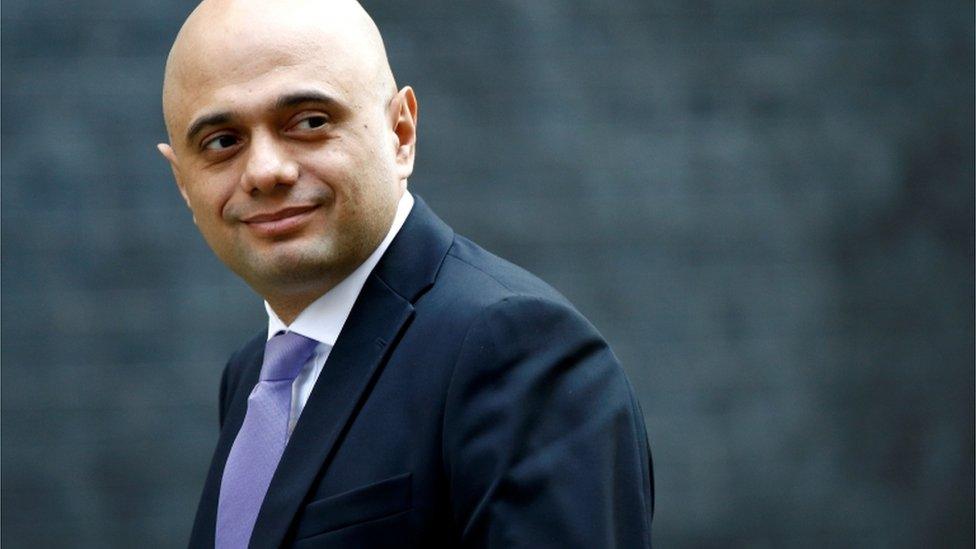
Chancellor Sajid Javid
But the revenue, or day-to-day, spending on public services is not going up by as much. There are elements already committed to the health service in England, and more for police.
That, too, will translate to additional funds coming into the Holyrood block grant, for MSPs to decide how it is spent. But it won't be as much as the SNP was calling for, so the Treasury-Holyrood battle over spending levels will surely continue.
That said, the track record of Tory Chancellors in the past nine years is that they are looser with public spending than they say they are going to be.
How will Holyrood set a budget for next year?
This has become a serious problem for finance secretary Derek Mackay, for MSPs, for local authorities, and those across the public and voluntary who depend on Scottish government funds next financial year.
The budget process ought to start with a draft in September, and legislation passed by the end of February. That has been squeezed by the change to Westminster's budget process, so the Holyrood draft budget has moved to late November/early December.
Without the Westminster budget, it is not clear the size of the block grant and the funds available to Holyrood. Without the Office for Budget Responsibility setting out its growth and inflation prospects, a vital element of budgeting is left unclear.
And the decisions made by the Chancellor of the Exchequer on income tax and National Insurance Contributions have a direct effect on the income tax choices available to the Scottish finance secretary.
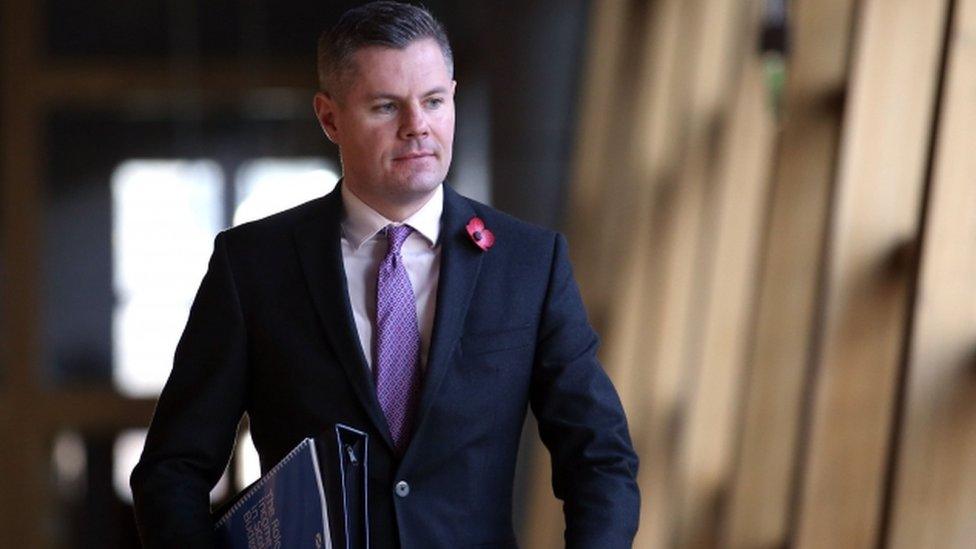
Scottish finance secretary Derek Mackay
A Westminster budget is unlikely before February. Attention until then will be focussed on "getting Brexit done" by the end of January. During the campaign, Tories said there would be a "tax-cutting budget" after that.
So MSPs will now huddle to find a schedule for rushing budget legislation after Westminster, or possibly drawing up a budget without much of the vital information for it.
Or there is the possibility of passing a temporary budget, most likely to last three months, each of which would be allocated a 12th of the current year's budget.
Whichever option is taken, there is the significant hurdle of getting sufficient support from opposition MSPs to get the budget passed. Scottish Greens have done deals before, and would likely be the first place Derek Mackay seeks support this winter.
If there is to be another Scottish independence referendum, have the economics changed?
Not much. There's a bit less austerity for pro-independence campaigners to rail against.
The debate over Scotland's future has focussed on the constitutional position. Legally, the Johnson government can refuse to allow a legal referendum to take place. But the politics aren't so simple, as the election result gives momentum to the SNP's case for another ballot.
If there were to be such a referendum, it would bring the economic questions back to the fore. And they have not got any easier for the SNP or other pro-independence groups to answer.
There's the familiar question of which currency Scotland would use. The new position for the SNP (compared with the 2014 campaign) is that Scotland would use the pound sterling, without having any share of control over it.
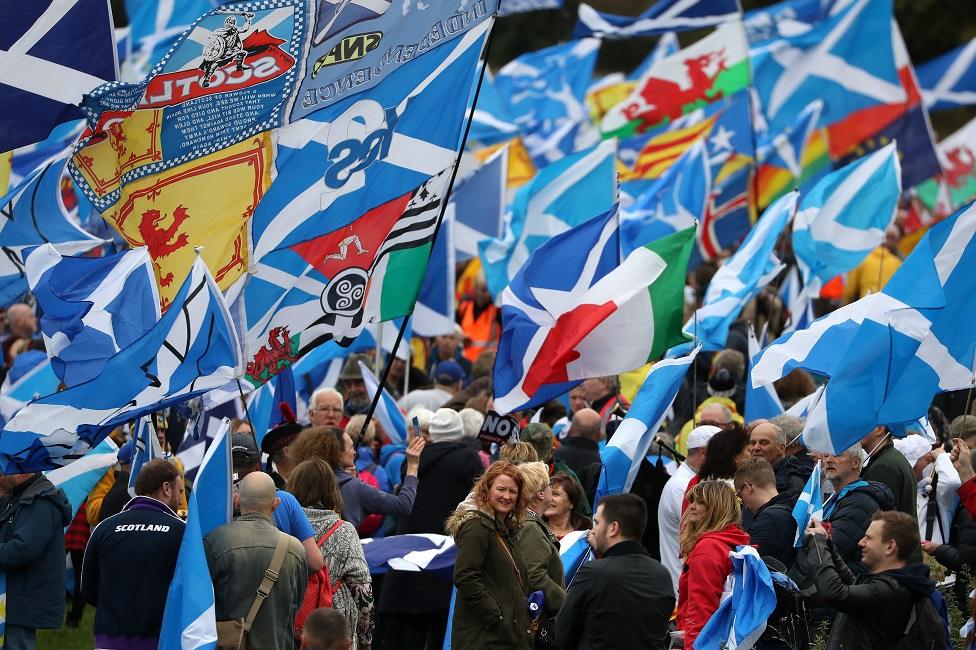
Thousands of people took part in an independence march through Edinburgh in October
It could then, eventually, move to a Scottish currency or Scotland could be required to adopt the euro. But none of these options is easy, in political or economic terms.
As in 2014, there is the question of how an independent Scotland would adjust public spending to the level of taxation. At present, the gap looks unsustainable.
And the new question is how to position Scotland between the preferred option of re-joining the European Union, while retaining the trading orientation towards post-Brexit England, Wales and Northern Ireland.
More than twice as much is sold into the rest of the UK than the rest of the world, so it matters that such trade remains as seamless and smooth as possible. But it's not at all clear how that would be achieved.
